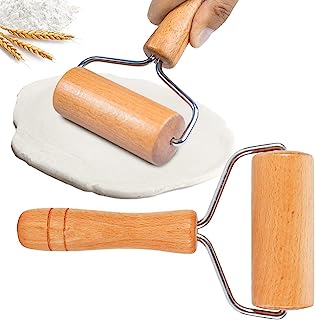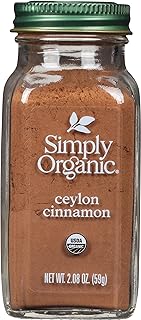5 important factors worth considering when looking for the best rolling dough rolling
Choosing the right rolling pin is essential for making dough. The perfect rolling pin can make baking easier, allowing you to create thin, even dough for pastries or pie crusts effortlessly. There are many types of rolling pins available, from classic wooden ones to modern marble designs. However, it’s important to focus on key factors like material, weight, length, and design when making your selection. Considering these aspects will help you find a rolling pin that meets your baking needs and enhances your kitchen experiences every time you use it.
See our guide to the best rolling dough rolling.
Material
When it comes to baking, the type of rolling pin you choose can make a big difference. Wooden rolling pins have a classic look and feel, and they give you a good connection to the dough. The natural patterns in the wood give each rolling pin its own special look, making it a cherished tool in the kitchen. A well-made wooden rolling pin slides smoothly over the dough, making it easy to shape and control pastries. There’s something enjoyable about the way a wooden rolling pin moves with the dough, creating a nice rhythm in the baking process.
On the other hand, a marble rolling pin can add an elegant touch to your baking. The cool, smooth surface of a marble rolling pin is great for delicate pastries that need careful handling. The weight of the marble helps flatten dough evenly without much effort. Marble is also good for sticky dough because it doesn’t stick to it, making rolling easier. When it comes to choosing between a wooden or marble rolling pin, it’s really a matter of personal preference and the type of baking projects you do. Both materials have their own special qualities that can make baking more enjoyable and bring joy to your cooking.
Size
When choosing a rolling pin for baking, the size is important. The size of the rolling pin can make a big difference in how your dough turns out. A larger rolling pin is good for rolling out a lot of dough or for tricky pastry recipes. A smaller rolling pin is better for precise and delicate pastries. Think about your workspace and the types of baking projects you like to do when picking a rolling pin size. Also, consider how heavy the rolling pin is and how easy it is to use. Choosing the right size rolling pin can make baking easier and more enjoyable.
While some people think a standard rolling pin is all you need, having a variety of sizes can help you become a better baker. Different sizes of rolling pins can make it easier to work with different recipes. Whether you’re making a big pizza or intricate cookies, having different sizes of rolling pins can help you adapt to different baking challenges. Trying out different sizes can also help you be more creative in the kitchen and learn new techniques. Having a variety of sizes of rolling pins can improve your baking skills and make it easier to achieve delicious treats.
Handles
When you’re looking to buy a rolling pin, it’s important to think about the handles. The handles are where you hold the pin and they play a big role in how easy it is to use and control. Choosing handles that are comfortable and well-made can make a big difference in how enjoyable your baking experience is. Picture smoothly rolling the pin over dough, with a perfect grip and balance from the right handles. This can really make a big impact, especially during long baking sessions when every move matters.
In addition, the handles should not only work well but also match your personal style. Whether you like classic wooden handles for a cozy feel or modern designs for a sleek look, the handles can show off your personality in your kitchen tools. Remember, the handles are not just part of the rolling pin, but an expression of your love for baking and creativity. So, when you’re picking out your next rolling pin, think carefully about the handles; they could be the secret weapon that takes your baking skills to the next level.
Thickness
When you’re buying a dough rolling pin, one important thing to consider is how thick the pin is. The thickness of the pin can make a big difference in how your dough turns out. A thinner pin gives you more control over the thickness of your dough, making the end product more even. A thicker pin provides more force, which can help with dense dough that needs extra pressure to roll properly. Think about what you like to bake and how you like your dough before choosing the thickness of your rolling pin, as it can really impact your baking experience.
The thickness of the rolling pin is also important for getting the results you want with different types of dough. A thin pin is great for delicate pastries like puff pastry or pie crusts, where being precise is crucial to keeping them flaky. On the other hand, a thicker pin is better for flattening heavy bread dough or pizza crusts, where you need a stronger touch. The thickness of your rolling pin should match your baking style and preferences, making your cooking adventures better and ensuring that your dough is always rolled perfectly.
Durability
When choosing a rolling pin for your kitchen, it’s important to prioritize durability. A high-quality rolling pin that is built to last will not only serve you well for a long time, but it will also ensure consistent performance. Materials like stainless steel or solid wood are great options for durability and can make a big difference in your baking endeavors. The last thing you want is for your rolling pin to fail you in the middle of rolling out dough.
While it might be tempting to go for a cheaper option, sacrificing durability for a lower price can end up costing you more in the long term. A durable rolling pin can handle frequent use without warping or breaking, making it a reliable kitchen tool. Investing in a durable rolling pin is not only practical but also a smart choice that will improve your baking experience and the quality of your culinary creations in the end.
Conclusion
To sum up, rolling dough is more than just a simple task – it can be a calming and satisfying experience that ties us to tradition and skill. With patience, care, and imagination, each roll of dough is like a stroke of paint on a canvas, blending flavors and textures to make delicious dishes. Feeling the dough change under our hands shows us how basic ingredients and talent can create something special, turning the act of rolling dough into a joyful tribute to culinary art. Want more info on futon cover for dogs, check the best futon cover for dogs.

